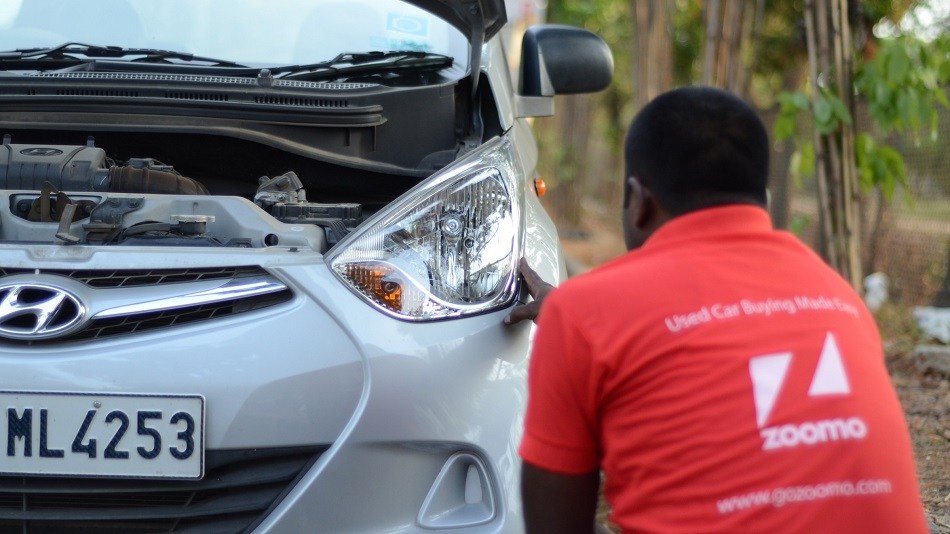
Photo credit: Pexels.
After the irrational exuberance of 2015, when hedge funds and VCs were falling over themselves to back internet businesses in India, there’s been a sobering down this year. Software industry body Nasscom noted a 20-30 percent decline in funding.
Startups big and small have felt the withdrawal pangs. Flipkart struggled to raise funds and saw its valuation slashed repeatedly. Japanese giant SoftBank wrote down US$550 million in its biggest India investments, Snapdeal and Ola.
More than 1,000 startups shut down in India this year.
Several others just folded up. As many as 1,000 startups shut down, more than half of which were founded in the Indian startup ecosystem’s takeoff period of 2013 and 2014.
Some were startups solving real problems that simply ran out of runway as VCs tightened their purse strings and hedge funds fled the scene. Others found, to their dismay, that me-too business models borrowed from the West don’t always work in India. Several got gobbled up in low-value acqui-hires.
The reasons for the failures were varied, and there’s a lot to learn from them. Here’s a selection of startups that closed this year, based on data from venture capital research firm Tracxn along with our analysis of the lessons we can draw from their experience.
See: 10 reasons why startups fail – from the confessions of founders
Peppertap, LocalBanya, GrocShop

Photo credit: gratisography.
Hyperlocal grocery delivery startup PepperTap has the dubious distinction of being the biggest failure of 2016. The Gurgaon-based startup had raised over US$50 million, including a US$36 million series B round led by ecommerce player Snapdeal in September last year. And yet, less than a year later, it shut down.
“We operated on a negative margin per delivery, and in such a scenario, the path to profitability looked very distant – at least two to three years,” PepperTap founder and CEO Navneet Singh told Tech in Asia. It’s not the only one: LocalBanya, which raised US$5 million, also floundered and bit the dust. A third significant flop was GrocShop, founded by IIT Bombay alumni and selected by Google for mentoring.
See: 11 failed startups in India in 2015
Essentially, grocery delivery startups have been ‘buying’ customers, who pay no convenience fees to get the groceries delivered to their doorsteps. Also, when a discount is offered to acquire more customers, it’s the local retailers who grab the cheap groceries from these apps, thus defeating the intention to acquire more customers.
The bigger players hope to offset the cash burn with scale, but that has run into problems too. The well-funded Grofers forayed into tier-2 cities but had to beat a hasty retreat when the cost of acquiring customers skyrocketed.
Newer players claim to have learned from the mistakes of their predecessors by maintaining a sharper focus. Milkbasket, for example, which raised seed funding days after the closure of PepperTap, started with just one product and confined itself to the tech hub of Gurgaon.
The leading player BigBasket, which is also one of the earliest in this space, has adopted an inventory-based model by sourcing, stocking, and packing its grocery. This is a deeper play than those jumping in to connect suppliers with customers. But even BigBasket will need more funding to expand and stay ahead as Amazon eyes India’s huge grocery market.
See: 11 reasons why online grocery startups are failing in India
iProf, Purple Squirrel

He who has imagination without learning has wings but no feet, said Joseph Joubert. Photo credit: Pixabay.
Edtech is another domain in India which puts investors in a dilemma: its potential is huge in a population of 1.3 billion with scarce access to good quality education. But sales cycles are long, traditional institutions slow to adopt innovation from outsiders, and there are too many me-too players without the patience to tackle core problems.
A case in point is iProf, one of the earliest test prep startups in a country where college entrance exams are do-or-die affairs. The Delhi-based startup, which raised US$15 million in its seven-year run, wound up this year. Another edtech startup, Purple Squirrel, with US$2 million of funding, shut down earlier in the year. It connected students with companies offering access for visits and training.
The biggest player in India’s edtech space has an online-cum-offline model. Byju’s uses a chain of coaching centers to complement its apps. It has raised US$149 million, including US$125 million in two rounds this year alone. Among its backers is Mark Zuckerberg.
Edtech startups have two main problems to solve: finding ways to monetize in a space where consumers are used to free stuff online, and building differentiated products and services. China also saw a spate of copycats, which led to a funding squeeze for many.
See: Edtech funding in India takes a cue from China, but a slippery road lies ahead
Zoomo (GoZoomo)

Inspection of a car before being listed on Zoomo. Photo credit: Zoomo.
This was an unusual shutdown. Used car marketplace Zoomo (earlier called GoZoomo) raised US$7 million in funding, had more than half of it left in the bank, but decided to call it quits. The founding team of three IITians looked at the data and saw the unit economics were not adding up, despite several iterations in the business model. Then they took the tough decision to shut shop instead of burning VC money on an unsustainable business.
“The right thing to do is to treat the capital respectfully and deploy it where there is a better chance to create huge value,” GoZoomo CEO and co-founder Arnav Kumar told Tech in Asia.
The problem it set out to solve was the lack of trust in the Indian used car market, where vehicle history rarely has a paper trail. GoZoomo tried to crack this with inspection-based quality assurance for peer-to-peer transactions, keeping car dealers out of the marketplace.
The problem GoZoomo ran into was haggling over price, in a culture where consumers often put a premium on discount instead of quality. Perhaps the market was just not ready for this solution – because without a doubt there’s a problem of trust in used cars, despite the presence of several well-funded players like Cardekho, Droom, and QuikrCars.
See: Millions still in the bank, GoZoomo shuts shop, returns VC money. The whole story.
AskMe

Photo credit: Wikimedia.
If the GoZoomo founders displayed rare ethics in returning millions of dollars to their investors, here’s the other end of the spectrum.
Malaysia-based investor Astro had to file a petition in the Delhi high court to close down Getit Infoservices, the parent company of ecommerce marketplace AskMe. The investor says the business has been floundering despite the US$300 million it pumped in since 2010. And despite holding 99 percent of the shares, it was thwarted in liquidating the company.
Getit was a listing site for small vendors. It morphed into an ecommerce marketplace, trying to leverage its vendor database. But it struggled to set up a managed system for the vendors to sell online. Top managers complained of lack of transparency from the founding team.
See: The sordid saga of a $300-million-funded startup going bust in India
Doormint

Photo credit: Pixabay.
The marketplace model has a low entry barrier, but it’s hard as hell to execute profitably in India. On-demand laundry startup Doormint discovered this the hard way.
It began as a home services startup in Mumbai, then pivoted to the laundry vertical for more focus. This seemed promising and Doormint was selected in the first batch of the Google Launchpad accelerator. But despite several tweaks to its business model, it was unable to scale up without an unsustainable cash burn. “The costs of processing clothes, pick up and drop logistics, and packaging were difficult to recover through prices,” Doormint co-founders Abhinav Agarwal and Naman Lahoty said in a goodbye statement.
One factor that neither the founders nor investors seem to have taken into account is the widespread use of low-cost house help in India. Every neighborhood also has a dhobi (laundry person). An online laundry service has to beat that in convenience and cost. That’s a tall ask.
In the case of Doormint, the assumptions it made about the problem it was solving and its execution were proven wrong.
See: India’s largest and best funded laundry startup shuts shop. Here’s why
TinyOwl, ZuperMeal, BiteClub, Zeppery, iTiffin

Photo credit: All What She Wants.
Food delivery startups have borne the brunt of the yo-yo effect of a funding gluttony last year and starvation this year. The failures of the well-funded TinyOwl and ZuperMeal typify the problems in this space.
TinyOwl raised US$15 million in February last year, followed by a bridge round of US$7.4 million in October to give it an extended runway. But all the funding could not solve the core problems of delivery costs, negative margins, and unreliable food quality and service from restaurants. It had acrimonious layoffs followed by a merger with logistics startup Roadrunnr.
A similar fate befell Zupermeal, which wanted to connect home chefs with professionals ordering food in cities. It got US$2 million in seed funding from angel investors, including celebrity chef Sanjeev Kapoor. But it closed down within eight months.
See: Can’t eat paper profits: India’s startup ecosystem has a vital cog missing
iTiffin, backed by Bangalore cricket star Robin Uthappa, had a subscription-based model for delivering meals with a predefined calorie count. It was unable to raise growth funding. “There was a lot of negativity around the food industry this year,” iTiffin founder Tapan Kumar Das told Tech in Asia.
Likewise with Gurgaon-based BiteClub, which could not make it despite backing from prominent angel investors like Alok Mittal, founder of debt financing company Indifi, and Aneesh Reddy, founder of Capillary.
As for Zeppery, it modeled itself on American mobile shopping app Tapingo. It connected users with food outlets nearby. But the startup could not scale.
Others who diversified into food delivery, such as taxi app Ola, also wound up operations, while restaurant discovery site Zomato scaled back operations. Rocket Internet’s Foodpanda wound up as well. Overall, the food tech space saw an 87 percent decline in funding in 2016.
This left FreshMenu, which developed its own kitchens to ensure quality and build a brand, sitting pretty and talking of becoming profitable next year. And the well-funded Swiggy emerged as a dominant player amid the ashes. It raised US$57 million this year, and got breathing room to experiment with its own kitchens. It also paid attention to the process of onboarding restaurant partners and providing Uber-like efficiency.
See: Foodtech startups in India are starving. Funding in the sector hits 5-year low.
Fashionara, Ladyblush

Photo credit: 123rf.
Fashion ecommerce is another area with too many copycats and too little differentiation. So it’s not surprising to see some spectacular flameouts here.
One of them was Bangalore-based Fashionara, which adopted a flash sales model. It could only lure customers with deep discounting. Once the cash ran out and no more investors were in sight, it had to shut shop. This, despite being founded by experienced professionals – former Reliance Trends CEO Arun Sirdeshmukh and former Times Internet CTO Darpan Munjal. US$8 million in funding and a four-year-run went to nought.
Similarly, women-only fashion portal Ladyblush, based in Gurgaon, had US$4 million in funding and four years to get its act together. But once the funding dried up, it was left blushing.
See: VCs fiddled while India’s startup scene rotted – now the shit’s hitting the fan
Klozee

Photo credit: indiraswork / 123RF.
A number of startups got VC backing in the fashion rental space. It’s a proven model in the US, with Poshmark and Rent the Runway, as well as in China, with Secoo.
Flyrobe, Liberent, Elanic, SwishList, Klozee, The Clothing Rental – a whole line of startups came up in the last couple of years to crack this space in India. But it’s harder than it sounds on paper.
Klozee, which had backing from TracxnLabs, the investment arm of Tracxn, shut down within six months of its founding. “We felt that the market is not prepared for this. We did not see demand shaping up the way we expected. Klozee was doing around 12-15 orders a day,” Klozee co-founder Arman Haji told Mint.
Indians are not used to borrowing clothes, even to flaunt high fashion. Apart from the concept itself, many would be concerned over hygiene, despite assurances of super cleaning.
It may take time to overcome this mindset and develop the market, which has great potential on paper. Klozee did not have the funding or business model to stay the course. But others may crack it. Even as Klozee closed, Flyrobe raised a series A round of US$5.3 million from Japan’s Gree Ventures in August to be the “Uber for women’s fashion.”
See: Meet the Uber of Indian women’s fashion: 100 orders a day for 15-week-old app
Truckmandi, Parcelled

Photo credit: Lord Enfield.
An estimated 15 percent of India’s GDP is spent on logistics and transportation, which is twice the average amount in other developing countries. Research firm Technopak says logistics and delivery account for 30 percent of the costs of ecommerce companies in India – whereas it’s a little over 10 percent in the US.
Little wonder there’s been a plethora of startups in this space, with investors buzzing around them. But logistics, transportation, and delivery are complex in India and costs can spiral out of control. The two failed startups Parcelled and TruckMandi are evidence of that.
Parcelled was in the business of last-mile logistics, handling pick-ups, packaging, and moving goods to the next point in the delivery chain. But it closed operations because of poor margins and cash burn.
TruckMandi, founded by former employees of ecommerce company Snapdeal, was an on-demand truck booking app. Transporters could bid for customer loads for a fee – two percent of the carrying charge. It sounded good on paper and raised US$2 million, but shut down in a year and a half.
Logistics is a space that separates the wheat from the chaff quickly. “It is not just about booking a truck,” LetsTransport co-founder Pushkar Singh, who had earlier managed a biscuit manufacturing unit for ITC, had explained to me. What he meant was that the logistics needs of a biscuit manufacturer are different from those of a food delivery business or a construction business.
“We understand the client from an operations perspective and then cater to their needs, instead of just sending them any truck,” Pushkar told me. His startup has backing from Japanese VC Rebright Partners and wants to help its clients adopt a Japanese-style just-in-time manufacturing model, which requires well-planned, appropriate, and timely logistics support.
See: Here’s what made a Japanese VC bet big on this young Indian logistics startup
Buildzar

Photo credit: Pexels.
A sudden change in the business environment can sound the death knell for a startup. This is what happened to Buildzar, a one-year-old marketplace for building materials in Delhi NCR (National Capital Region).
Last month, India imposed a clampdown on the use of cash, in a bid to curb black money and digitize the economy. The real estate business, where cash transactions are the norm to avoid various taxes, got hit the most. Suddenly, sellers became scarce on Buildzar and it had to shut down. It did not have a long enough runway to adjust to a new way of doing business.
See: Cash crunch takes its toll on ecommerce, Buildzar shuts down
Shotpitch
A regulatory shift also appears to have contributed to the downfall of Shotpitch, a mobile app to enable an entrepreneur to send a pitch to an investor with a single click.
Opening new channels of funding for early stage startups on mobile devices seemed like a logical extension of crowdfunding and other online funding models. But it’s a gray area. The Securities and Exchange Board of India issued a notice on August 30, cautioning investors that such platforms may be violating the laws on private placement of equity by operating like stock exchanges.
The Shotpitch founder, Prashant Sharma, had earlier worked for funding platform LetsVenture.
See: An idea whose time hadn’t come: app for startups to pitch to investors shuts down
Autoncab

A number of startups came up in India, wanting to be the Uber for three-wheeler auto-rickshaws (Southeast Asia’s tuk-tuks). And they even caught the attention of observers abroad as the poor man’s Uber. These mobile auto-hailing apps are “demonstrating how modern technology can be mashed up with traditional technology to solve problems in developing cities around the world,” gushed Harvard Business Review.
Unfortunately, the ground reality is different. Adoption has been slow among drivers even in tech hubs like Bangalore and Gurgaon (near Delhi). Riders haven’t rushed for them either, because the fares on hatchback Uber cars work out almost the same as auto-rickshaw fares.
Inevitably, the auto-rickshaw apps have started to die. Gurgaon-based Autoncab’s closure is a case in point. Another one that shut down earlier was AutoRaja. “My main motive for starting AutoRaja was to make the auto-rickshaw drivers a part of the organized sector,” AutoRaja co-founder Aishwarya Raman told Tech in Asia. After shutting down her startup, she joined Ola Auto to “gain experience.”
It’s probably the well-funded players like Ola – or Uber itself – who’re better placed to crack the “Uber for auto-rickshaw” space. The smaller players just don’t have the financial muscle, knowhow, and experience for it.
See: Is there life after startups? Here’s what these founders did next
FranklyMe, Murmur
Now, here are two other startups that were part of the first batch of the Google Launchpad accelerator program. Like on-demand laundry startup Doormint, FranklyMe and Murmur shut down barely a year after attending the Google program in Silicon Valley..
FranklyMe began as a site for connecting celebs with fans, then pivoted to video blogging. It had tools to help users create and post videos. But it was unable to build traction. “While the market seems keen on adopting video to consume happenings around itself, video creation still remains a challenge and probably a problem a little ahead of its time,” FranklyMe founder Nikunj Jain said in a blog post.
Murmur was another media app aimed at millennials, offering a personalized mix of photos, videos, GIFs, and news. Again, this had no clear value proposition or monetization scope.
See: How likely is your startup to fail within a year? Here’s the bitter pill
DateIITians, Cogxio

Photo credit: Alex Bellink.
And finally, we have the heartbreak of India’s first Tinder shutting down. Founder Layak Singh started DateIITians while he was a student at premier engineering college IIT Kharagpur way back in 2011. Being a novelty, it quickly went viral but that didn’t translate into stickiness.
The founder then launched a new startup, Cogxio. This was a dating app that used location intelligence to link up those who were already connected online. It wanted to tie up with consumer internet businesses to provide dating options like places to eat and vacations. But by now, there were already well-funded players like TrulyMadly, Woo, and Vee. Tinder also arrived in India, and so both DateIITians and Cogxio packed up. It just could not get backing in time to build a viable business model.
See: Why India’s first Tinder shut down after a 5-year run
Many other startups have shut down this year. What stands out when we look at the well-funded ones that gained a lot of media attention is that the only thing that matters in the end is a sustainable business model, great execution, and something in reserve to avoid being derailed by bad luck or a shift in business environment.
See: Something’s rotten in India’s startup scene – and it’s time to call it out
It’s notable that enterprise startups figure less prominently among the failures. Fintech, for instance, has been booming this year, and it has got a further boost with demonetization in the economy. Startups in these spaces have clearer paths to profitability, and we’re likely to see them gaining ascendancy in the year ahead – at least until the consumer internet space produces a few big winners and exits for investors, which are sorely lacking right now.
This post 25 failed startups in India this year and what you can learn from them appeared first on Tech in Asia.
from Tech in Asia https://www.techinasia.com/insights-from-25-failed-startups-in-india-2016
via IFTTT
No comments:
Post a Comment